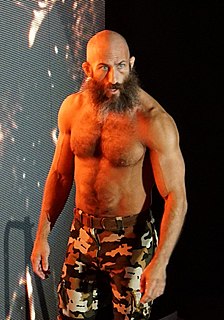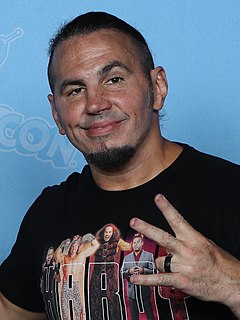A Quote by Tommaso Ciampa
That NXT title, in character and out of character, it means the world to me.
Related Quotes
When I'm writing, I try to have the mask of my character on as I'm walking through the world. When I'm not at my desk, the rest of the time, I try to stay in that character and see the world the way that character would It's almost like method acting in a way — keeping the character close the way the actor keeps a script close and always tries to be in character.
If you do a black character or a female character or an Asian character, then they aren't just that character. They represent that race or that sex, and they can't be interesting because everything they do has to represent an entire block of people. You know, Superman isn't all white people and neither is Lex Luthor. We knew we had to present a range of characters within each ethnic group, which means that we couldn't do just one book. We had to do a series of books and we had to present a view of the world that's wider than the world we've seen before.
When needs and means become abstract in quality, abstraction is also a character of the reciprocal relation of individuals to oneanother. This abstract character, universality, is the character of being recognized and is the moment which makes concrete, i.e. social, the isolated and abstract needs and their ways and means of satisfaction.
Within a single scene, it seems to be unwise to have access to the inner reflections of more than one character. The reader generally needs a single character as the means of perception, as the character to whom the events are happening, as the character with whom he is to empathize in order to have the events of the writing happen to him.


































